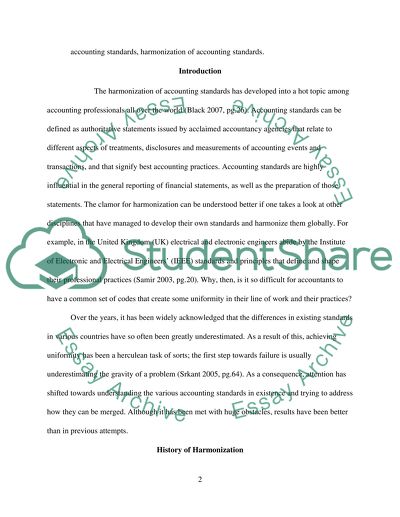Cite this document
(“Harmonisation of Accounting Standards Essay Example | Topics and Well Written Essays - 1500 words”, n.d.)
Retrieved from https://studentshare.org/finance-accounting/1464086-harmonisation-of-accounting-standards
Retrieved from https://studentshare.org/finance-accounting/1464086-harmonisation-of-accounting-standards
(Harmonisation of Accounting Standards Essay Example | Topics and Well Written Essays - 1500 Words)
https://studentshare.org/finance-accounting/1464086-harmonisation-of-accounting-standards.
https://studentshare.org/finance-accounting/1464086-harmonisation-of-accounting-standards.
“Harmonisation of Accounting Standards Essay Example | Topics and Well Written Essays - 1500 Words”, n.d. https://studentshare.org/finance-accounting/1464086-harmonisation-of-accounting-standards.


